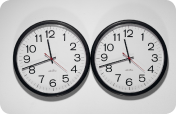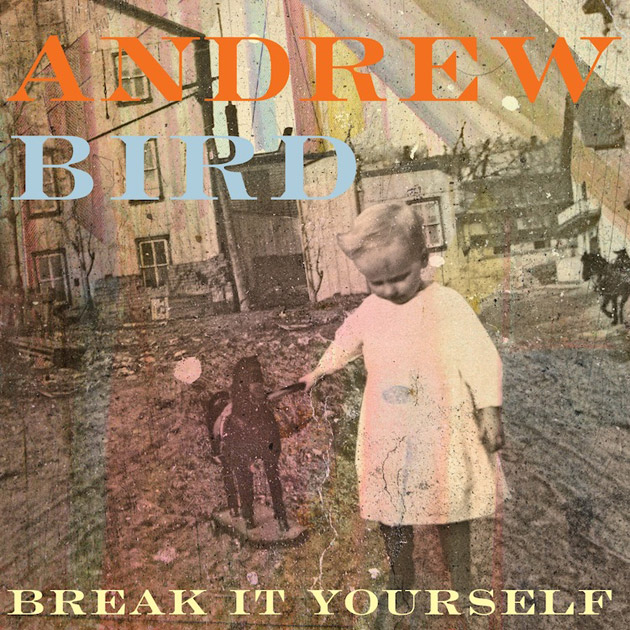[static file=”marchMadness”]
first battle
round 1
General Idea
This is one of those unfair match-ups, where both teams deserve to win. Torres’ work is subtle and elegant, while General Idea made a point of being in your face. While we’re fond of the quietude and deeply political nature of Torres, we feel it gets lost on the YouTube generation.
Julian Schnabel
Jeff Koons’ work is rehashing his greatest hits from the ’80s. “Balloon Dog,” originally a modest sculpture, has now been transformed into a massive public installation. Plus, Koons is suing other artists for infringing on his copyright. While we’re not a huge fan of Julian Schnabel, who gives away portraits as prizes in Vanity Fair and mostly directs movies now, we did really like “The Diving Bell and The Butterfly.”
General Idea
Holzer has been increasingly political, and she still makes bold art work, while GI’s AIDS activism was key in raising awareness about the disease. While Holzer’s critique of the Iraq is still moving, we can’t help but wonder what GI would have to say about marriage equality, AIDS activism economic inequality.
Sophie Calle
Goldin works primarily in photography, and her aesthetic is permanently on display in every American Apparel ad and Instagram photo. Calle, also a photographer, finds her modern-day mainstream iteration in Hazel Wassername of “30 Rock.”
Jenny Holzer
These two text-based, female artists have been compared since the ’80s, and we’re sure they’re tired of it. Though Kruger has updated her typeface choices as of late, Holzer is now working in LED and digital text, and her “Redacted” series sent chills down our spine.
Jenny Holzer
As art madness gets louder, the quiet ones get drowned out. Holzer is still interested in drawing attention to the visual noise of scrolling LEDs and the ceaseless hum of Twitter. Calle is very much about being present as an artist, but Holzer manages to be omnipresent. Plus, did we mention that the “Redacted” series used real human remains?
General Idea
Holzer has been increasingly political, and she still makes bold art work, while GI’s AIDS activism was key in raising awareness about the disease. While Holzer’s critique of the Iraq is still moving, we can’t help but wonder what GI would have to say about marriage equality, AIDS activism economic inequality.
round 1
General Idea
“AIDS Wallpaper,” 1989.
“AIDS Wallpaper,” 1989.
Felix Gonzalez-Torres
“Untitled” (Perfect Lovers), 1987-1990.
“Untitled” (Perfect Lovers), 1987-1990.
General Idea
This is one of those unfair match-ups, where both teams deserve to win. Torres’ work is subtle and elegant, while General Idea made a point of being in your face. While we’re fond of the quietude and deeply political nature of Torres, we feel it gets lost on the YouTube generation.

Julian Schnabel
“Portrait of Andy Warhol,” 1982.
“Portrait of Andy Warhol,” 1982.
Jeff Koons
“Rabbit,” 1986.
“Rabbit,” 1986.
Julian Schnabel
Jeff Koons’ work is rehashing his greatest hits from the ’80s. “Balloon Dog,” originally a modest sculpture, has now been transformed into a massive public installation. Plus, Koons is suing other artists for infringing on his copyright. While we’re not a huge fan of Julian Schnabel, who gives away portraits as prizes in Vanity Fair and mostly directs movies now, we did really like “The Diving Bell and The Butterfly.”
General Idea
Holzer has been increasingly political, and she still makes bold art work, while GI’s AIDS activism was key in raising awareness about the disease. While Holzer’s critique of the Iraq is still moving, we can’t help but wonder what GI would have to say about marriage equality, AIDS activism economic inequality.
round 2
Nan Goldin
“The Ballad of Sexual Dependency,” 1979-2001. Multimedia presentation of projected slides and taped soundtrack, 45 minutes
“The Ballad of Sexual Dependency,” 1979-2001. Multimedia presentation of projected slides and taped soundtrack, 45 minutes
Sophie Calle
“The Shadow,” 1981. Photographs and text
“The Shadow,” 1981. Photographs and text
Sophie Calle
Goldin works primarily in photography, and her aesthetic is permanently on display in every American Apparel ad and Instagram photo. Calle, also a photographer, finds her modern-day mainstream iteration in Hazel Wassername of “30 Rock.”
Jenny Holzer
“10 Inflammatory Essays,” 1979-82. Set of 10 offset posters on colored paper
“10 Inflammatory Essays,” 1979-82. Set of 10 offset posters on colored paper
Barbara Kruger
“Untitled” (We Will No Longer Be Seen and Not Heard), 1985.
“Untitled” (We Will No Longer Be Seen and Not Heard), 1985.
Jenny Holzer
These two text-based, female artists have been compared since the ’80s, and we’re sure they’re tired of it. Though Kruger has updated her typeface choices as of late, Holzer is now working in LED and digital text, and her “Redacted” series sent chills down our spine.

Jenny Holzer
As art madness gets louder, the quiet ones get drowned out. Holzer is still interested in drawing attention to the visual noise of scrolling LEDs and the ceaseless hum of Twitter. Calle is very much about being present as an artist, but Holzer manages to be omnipresent. Plus, did we mention that the “Redacted” series used real human remains?
battle winner
General Idea
Jenny Holzer
General Idea
Holzer has been increasingly political, and she still makes bold art work, while GI’s AIDS activism was key in raising awareness about the disease. While Holzer’s critique of the Iraq is still moving, we can’t help but wonder what GI would have to say about marriage equality, AIDS activism economic inequality.
continue on to the second battle >







